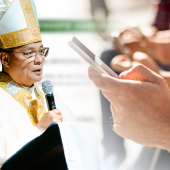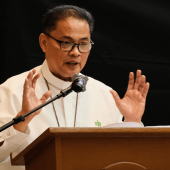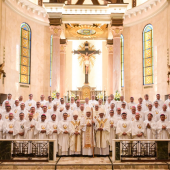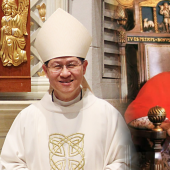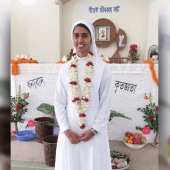Avoid ‘slippery slope’ to authoritarianism, says Philippine bishops’ conference amid Charter Change petition
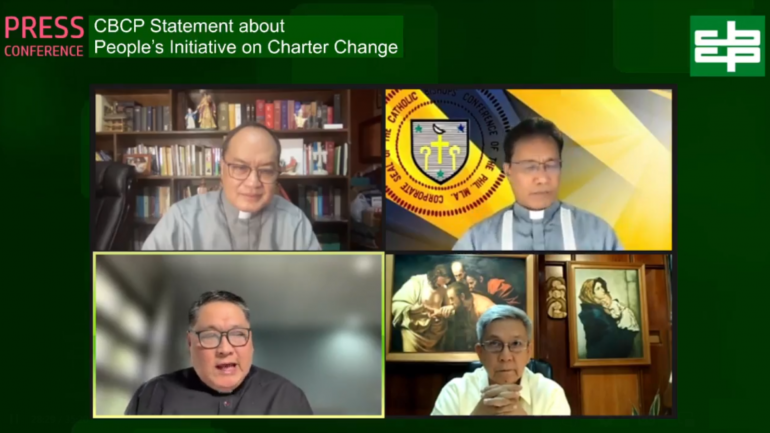
The leadership of the Catholic Bishops’ Conference of the Philippines (CBCP) calls on every Filipino to observe proper discernment and not let the nation fall into the slippery slope towards authoritarianism.
This call is the bishops’ response to the current Charter Change petition that aims to amend the Philippine Constitution, particularly its economic provisions.
“We would like to initiate conversations in our communities, parishes, and the Basic Ecclesial Communities, especially if there are still forces that are pushing for Charter Change in whatever form,” said CBCP President Bishop Pablo Virgilio David in a virtual press conference on February 2.
In a recent statement, the CBCP underlined that the petition is somewhat ‘deceptive’ due to the lack of public education and awareness about it, as well as the bribery allegations surrounding it.
“The amendment of the Constitution must not be taken lightly because this is the fruit of the blood, sweat, and tears of the Filipino people,” said Bishop David.
“We don’t want to fall again into the slippery slope towards authoritarianism,” he said. “We had tragic experiences in the past, and we don’t want it to happen again.”
The current Philippine Constitution was ratified and enforced in 1987, when the Philippines regained democracy after the dictatorship and martial rule of former President Ferdinand Marcos, Sr., father of the incumbent President Ferdinand “Bongbong” Marcos Jr.
Bishop David said that the Church must take “a more synodal approach” in discerning this issue.
“We will do this not only within the Catholic Church, but [also] in the spirit of ecumenism and interreligious dialogue,” said the prelate.
Meanwhile, CBCP Vice President Mylo Hubert Vergara pointed out the need to educate the youth on this matter.
“When it comes to plebiscites [and] elections... the youth must be aware of what is happening so they can cultivate the proper mindset in making the right decisions whenever the government needs something about important issues,” he said.
Bishop Vergara also emphasized that the Charter Change proposal faces urgent problems that need to be addressed, as evidenced by the stance of the Commission on Elections (COMELEC) and the Philippine Senate.
Meanwhile, Bishop Colin Bagaforo, Chairman of the CBCP-Episcopal Commission on Social Action, Justice, and Peace, noted that it is not outright bad to amend the Constitution but certainly requires a clear and orderly process.
“If we have movements [and] intentions to amend the Constitution... the education component is a must,” he said.
“The consultation must reach to all... so that we could understand its pros and cons, as well as put into debate the pulse of the nation and the problems being faced by the country,” he further said.
Radio Veritas Asia (RVA), a media platform of the Catholic Church, aims to share Christ. RVA started in 1969 as a continental Catholic radio station to serve Asian countries in their respective local language, thus earning the tag “the Voice of Asian Christianity.” Responding to the emerging context, RVA embraced media platforms to connect with the global Asian audience via its 21 language websites and various social media platforms.









